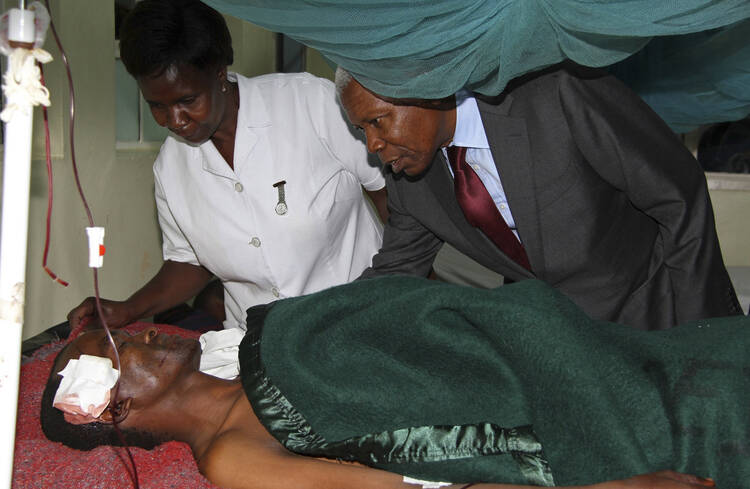When studying a foreign language, the word for “explosion” is normally not one of the first things I've learned. I now live in Tanzania, however, and the Swahili word for explosion, mlipuko, has become a surprisingly common part of my speech for two very different reasons.
The “fist bump,” whereby two people gently hit their fists together in lieu of a handshake, was already very common here, though I have introduced the “fist bump with an explosion” to the children in my neighborhood, pretending that the contact of fists creates a sound like a bomb and causes my clenched hand to burst open. I am now bombarded by smiling children thrusting their hands towards me, expecting such an exploding fist bump. Surprisingly enough, an “explosion” has become a symbol for me of joy and the innocence of childhood, and my daily interaction with these kids is not only breaking open my fist but also my heart.
Sadly, however, I have heard and used the same Swahili word for explosion for other, less innocent reasons. As the world is well aware, bombs at this year's Boston Marathon killed three and injured hundreds. While I'm halfway around the world, many here were shocked and saddened by the news and expressed their sympathy to me for the mlipuko that affected my country.
What most people outside of Tanzania are likely unaware of, however, was that another bomb less than three weeks later also killed three people and injured many others. A bomb went off at the start of Mass at the inauguration of a new Catholic church in Arusha, Tanzania. The Papal nuncio was in attendance, and this was one of several recent attacks against Christians in this country. Of course, people in Tanzania have talked about this extensively, though this explosion got far, far less international attention. It was mentioned in the New York Times... in 70 words.
I am sure that if I weren't in Tanzania, I would have skipped over that paragraph buried in the international section of the paper in order to read my favorite columnist or to check the sports scores.
It makes me think of just how many events of the world I am completely blind to.
Tragedies like the bombings in Boston and Arusha make me question how human beings could do such horrific things to other human beings. Knowing that these were not the only recent explosions in the world, however, these experiences also make me question how I could choose to ignore so many other similar incidents around the world.
When future explosions happen, whether they be figurative, joyful ones like fist bumps with children or literal, tragic ones like those in Boston or Arusha (or Syria or Afghanistan), will I allow them to break open my own heart?








